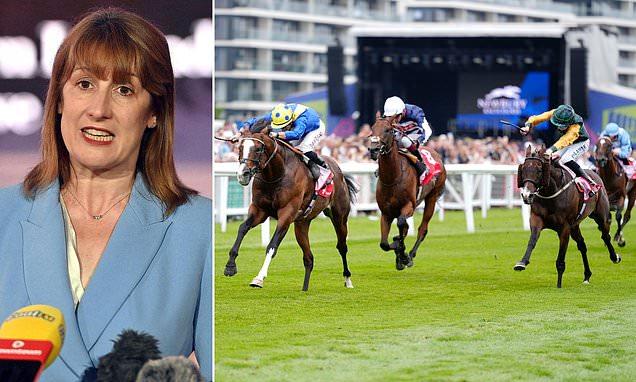Rachel Reeves’ Tax Hike Plan Ignites Fury in British Horseracing Industry
The British horseracing industry is up in arms over a proposed tax hike by Chancellor Rachel Reeves that could reshape the sector’s future. The Treasury’s plan to increase the tax on bookmakers’ racing profits from 15% to 21% has sparked a fierce backlash, with industry leaders warning of catastrophic consequences. This move, aimed at aligning bookmakers’ taxes with those of online casinos, could cost the industry millions and threaten thousands of jobs, prompting the British Horseracing Authority (BHA) to organize a potential strike that could disrupt the sport and its economic contributions.

Brant Dunshea, chief executive of the BHA, didn’t mince words when addressing the proposal. He described it as “one of the gravest risks to horseracing the sport has ever seen,” emphasizing the precarious financial state of an industry already stretched thin. According to industry estimates, the tax increase could drain £66 million annually from the sector, leading to 2,752 job losses and potentially pushing horseracing into “irreversible decline.” The stakes are high, with the BHA warning that a strike could cost the industry around £700,000 in a single day, a figure that underscores the economic ripple effects at play.
The proposed levy hike comes at a time when horseracing is grappling with rising costs and economic uncertainty. Bookmakers, who play a critical role in funding the sport through the Horserace Betting Levy, argue that the increase would squeeze their margins and force cutbacks in sponsorships and prize money. This could lead to fewer races, smaller events, and a diminished experience for fans and bettors alike. The sport’s cultural significance in Britain, where it supports rural economies and draws millions of spectators annually, makes the potential fallout all the more concerning.

Critics of the tax hike argue that Reeves’ plan overlooks the unique dynamics of the horseracing industry. Unlike online casinos, which operate in a digital realm with lower overheads, horseracing relies on physical infrastructure—stables, tracks, and training facilities—that demands significant investment. Industry representatives contend that equating the two sectors ignores these differences and risks undermining a sport that contributes £4.1 billion to the UK economy each year. The threat of job losses, particularly in rural areas where employment options are limited, adds a human dimension to the debate.
The timing of the proposal has also raised eyebrows. Reeves, who has already faced criticism for a £40 billion tax increase in her Autumn Budget, is navigating a delicate economic landscape. Her decision to raise National Insurance contributions and other levies has drawn ire from businesses and workers, with some accusing her of stifling growth. The horseracing tax hike, seen as another blow to private enterprise, has fueled perceptions of a government out of touch with industry needs. Shadow Business and Trade Secretary Andrew Griffith highlighted the broader implications, noting that Labour’s policies are driving a “brain drain” with 4,000 company directors and 16,000 millionaires reportedly leaving the UK in the past year.

Supporters of the tax hike argue that it’s a necessary step to stabilize public finances. The Treasury contends that aligning bookmakers’ taxes with those of online casinos ensures fairness across gambling sectors. However, this rationale has done little to quell the anger of those who see the policy as shortsighted. Dunshea’s warning of “catastrophic” consequences resonates with stakeholders who fear the sport’s heritage and economic vitality are at risk.
As the debate intensifies, the possibility of a strike looms large. The BHA’s planned walkout could disrupt major racing events, drawing public attention to the industry’s plight. For fans, the prospect of empty racetracks and canceled bets is a stark reminder of what’s at stake. The clash between Reeves’ fiscal ambitions and the horseracing industry’s survival instincts sets the stage for a high-stakes showdown. Will the Chancellor reconsider her approach, or will she push forward, risking the collapse of a cherished British tradition? The answer could reshape the sport for generations to come.





